Last year I did a blog post on the Star of Bethlehem. It contained an initial draft of a chapter from the novel I was writing.
That novel is almost ready to be released. It’s titled Rise Above, and the subtitle is What Science Tells Us About the Existence of God. Hopefully it will be released in the next two weeks. I’m very excited about it. I pray it will help people rise above the lies about science that have swallowed our culture, and see the magnificence of God as revealed by modern science.
I’ve reproduced below the final version of the chapter on the Star of Bethlehem. The scene is dinner Christmas Eve, at a mansion in Greenwich Connecticut. Here’s the characters in this chapter:
John – family patriarch, one of the richest persons in the world, dying of cancer.
Mary – John’s wife.
Ashley – their daughter, who teaches math at MIT.
Hajid – Ashley’s husband, who teaches physics at Harvard.
Rebecca – Ashley and Hajid’s daughter, nine years old and totally, totally adorable.
Matthew – John and Mary’s youngest son, who was a drug addict, went to prison, and almost overdosed.
Imani – Matthew’s girlfriend, a Black nurse from the South Bronx who knows the Bible and the history of the birth of Jesus.
I hope you enjoy it. Merry Christmas!
Chapter 25
They went back to the dining room for strawberry shortcake, with real whipped cream—lots of it. Nobody ever said Mary skimped on whipped cream. John felt tired and weak, but it was strawberry shortcake, so he sat up and ate. For some things, you had to push yourself. And even more important was the family being together on Christmas Eve. It had been a beautiful service but a little overwhelming. There was so much he didn’t know, so much he wanted to understand. Wait. Did Imani mention something about Jesus’s birth and the Star? He’d be interested to find out more.
“Imani, tell us when Jesus was born and about the Star,” said John. “If you don’t mind.”
John saw Imani look to Mary for permission. Mary nodded as a sign that Imani should go ahead.
“The short version or the long version?”
John smiled. “Maybe the medium version. The medium short version.”
“Okay. I learned about it after going to a talk. Then I read books and watched videos. It makes sense. It all fits together.”
Imani was feeling more at home, getting over the culture shock, and trying to get over years of prejudice against people with money. And if one thing was clear, it was that Imani loved talking about the Bible.
“People have tried to figure it out for 2000 years. There’s lots, tons of different theories. But I’ll tell you what I think, if you’ll let me.” Imani glanced at Ashley and Hajid.
John could see Imani didn’t want to be challenged by the education snobs. Imani’s got street smarts, thought John. It was something he’d come to respect from a thousand deals. Some people, and he thought of himself as one, have street smarts, intelligence and wisdom they didn’t learn at school. He expected Ashley and Hajid to challenge Imani. Could be interesting, he thought. Could be fun. Street-smart versus the education snobs. A little like David versus Goliath. Did Imani have a chance?
“The first question we need to ask,” began Imani, “is when did King Herod die? This is Herod the Great.”
“Why was he great?” asked Rebecca.
“Super question,” complimented Imani, “but your grandfather asked for a short version, so I’ll tell you all about him later.”
No one else interrupted, so Imani continued.
“People used to think Herod died in 4 BC,” Imani went on. “But now, we know there was a copying error in an ancient book. The earliest copies of that book tell us Herod died in 1 BC.” Imani paused and looked again at Ashley. “At least, that’s what I think. Some people with fancy degrees don’t agree.”
Priceless, thought John, priceless.
Imani continued. “When we look at the ancient skies using computers, and we know Jesus was born before Herod died, we see that on June 17, 2 BC, and we know the exact date here, the exact date and time, Jupiter and Venus appeared to touch each other in the sky. It’s called a ‘planetary conjunction.’ Jupiter and Venus are the brightest planets, the brightest objects in the sky after the Sun and the Moon. Jupiter and Venus touched each other, you might say kissed each other. It must have been amazing.”
“Does that happen often?” asked Rebecca, with rapt attention. She loved astronomy.
“No,” explained Imani. “It’s only happened three times in the past 2,000 years, and June 17, 2 BC is the only time the conjunction was visible from the Middle East. It may have been the closest, the most spectacular conjunction ever. NASA supercomputers have verified this. It’s true, it happened. That’s part of the story of the Star of Bethlehem, what the wise men saw. But it’s only part.”
Ashley couldn’t help herself. “But, Imani, and I don’t mean to be critical in the slightest, it’s very kind of you to tell us this story, but it seems a stretch to say that just because two planets appear to get near each other in the sky—and you’re right that’s called a conjunction, very good for you, nicely done—that just because they get near each other in the sky, that means Jesus was born that night. Planets move. Even if it happened as you say—and by the way, I agree, modern computers can show us what the ancient skies looked like at any time from any place on Earth, you did a good job on that, too—it seems a stretch to say that proves Jesus was born that night. Of course, that’s if Jesus was a real person.”
John saw Imani blink with shock. Imani sat up straight and shook her head in disbelief. It was as if Ashley had hit her with a bucket of cold water. Ashley had thrown down the gauntlet. The fight was on. If Jesus was a real person? If? Watch out, Ashley, thought John. You just stepped on a hornet’s nest. John saw Imani take a deep breath, square her shoulders, and glare at Ashley. Imani was visibly angry, almost shaking.
“First,” Imani said loudly, “I didn’t say it proves anything. But now, we’ve got a date. Now, we can put the pieces together. For how it all fits, you need the longer version.
“Second, as for Jesus being a real person, perhaps you should read the Roman records. Or study history. Jesus didn’t have your fancy education, and he didn’t have money or political power. He was born poor, and he died poor.” Imani looked around the lavish dining room. “But face facts, you can’t deny it. Jesus changed the world more than any other person.”
Priceless, thought John. Perfectly priceless. Ashley walked right into it. Imani was not going to back down. Now John needed to hear more.
“Now you’ve got to give us the long version,” he said. “I’m staying awake for this. Hit us with your best shot. I always thought the Star of Bethlehem was a myth, made up, you know sort of like…” John looked at Rebecca and stopped. “Like a made-up story.”
“You got it,” saluted Imani. “Put your seat belt on.”
“The wise men, and let’s use the word in the Bible, the Magi, came from Saba, a city that is now called Saveh. It’s sixty miles southwest of Tehran, in present-day Iran. It was a key city in the Parthian empire. The Parthians were tough. They were one of the great empires of the ancient world, an empire that lasted almost 500 years—a single dynasty. They were never conquered by Rome. They didn’t practice the Jewish religion, but they had Jewish blood, and they knew Jewish history and the Old Testament. They knew the prophecies about the Messiah. Their kings claimed they were entitled to rule because they were descended from the line of David.”
John was curious. “How do we know Saba’s the place?”
“From Marco Polo, the Venetian trader who made it to China and back. Marco Polo saw the tombs of the Magi in Saba around the year 1300, that’s almost thirteen centuries after Jesus. He gave details, said the tombs were of great size and beauty, said the bodies were well-preserved, and he even gave the names of the Magi. He wrote that the Magi left from Saba when they went to find Baby Jesus.”
“Couldn’t that have been added later into Marco Polo’s manuscript?” asked Ashley.
John saw Imani make a face. She glared at Ashley, still angry. Imani was not going to back down. “You can always make up stuff, and come up with a theory that denies Jesus, denies the living God. You have free will. You can make stuff up. I’m trying to keep it short. Do you mind if I continue?”
John was impressed at her standing up to Ashley.
Imani gained confidence. She kept going. “Let me tell you about the Magi and the Parthian empire. The Magi were royal astronomers and the top advisors of the kingdom. If you remember Daniel, the Daniel who survived being thrown into the lion’s den when God shut the mouths of the lions, that Daniel was the leader of the Magi 500 years before Jesus.”
Imani turned to Matthew, who was sitting next to her. “The Magi were like Jedi knights. Very powerful, very smart, and they knew astronomy. They could predict eclipses and planetary conjunctions, and they knew Jewish history.”
Again, Ashley couldn’t help herself. “I don’t think the Magi could possibly know in advance where planets would be.”
“Then you’ve never heard of the Antikythera mechanism,” stated Imani. “The world’s oldest analog computer. Found in a shipwreck off the coast of Greece, in a ship that sank two centuries before the birth of Jesus. If the ancient Greeks could predict conjunctions, I think it’s safe to say the Parthians could.”
Praise the Lord, thought John. Imani was eating Ashley’s lunch, besting her at every turn.
Imani looked at John. “Now the stage is set. We’ve got powerful royal astronomers, possibly the smartest people in the world, brilliant people with centuries of knowledge and access to the full resources of their empire. They know the Bible and they watch the skies carefully. Now we use modern computers to go back 2000 years, and look at what they saw.”
John saw Imani pause and look around the room. She was taking charge.
John saw Imani stare at Ashley. “This is going to get technical,” said Imani. “Try to keep up.”
Priceless, thought John, perfectly priceless.
“Go back nine months earlier, to September of 3 BC. The Magi witness a triple conjunction of Jupiter and the star Regulus. The Babylonians called this star ‘Sharru,’ meaning ‘the King.’ Jupiter, as everyone back then knew, was the King Planet. Jupiter passed Regulus three times and traced a crown above it. Regulus is the brightest star in the constellation of Leo the lion. The Bible compares the Israelite Tribe of Judah, the tribe of King David and Jesus, with a lion. This triple conjunction of the two kings happens only twice every 83 years.”
I’m loving this, thought John. Not sure I’m following it, but I’m loving it.
Imani was on a roll. “On September 11, 3 BC, as the triple conjunction begins, the sun rises in the womb of the virgin in the constellation Virgo. At the foot of the sun is a slim crescent moon. Of course, the constellation wasn’t visible when the sun was up. Would you agree, Professor Akbas, that you normally can’t see stars in the daylight?”
Hajid huffed. “Of course! Everybody knows that.”
“But the Magi have eyes, the smarts, to see it. They watch in wonder as the king moving star and the king fixed star dance together, trace a crown, in the womb of a virgin. These guys had instruments and skills we can hardly imagine.” John saw Imani glance at Ashley again. “You really should read about the Antikythera mechanism. It would be a nice addition to your education.”
John almost burst out laughing. Ashley shot him a dirty look, but Mark was smiling.
Imani continued. “Okay, and do try to keep up, professors, don’t make me explain it again, the sun appears here only one day every year, and the moon has this shape one day each lunar cycle.” She looked at Hajid. “That’s 29 1/2 days, right? All signs, the Heavens themselves, point to the coming birth of a great king in Judah. This was the date of Christ’s conception, this is the blessed day the Angel Gabriel appeared to Mary.”[1]
There was no stopping Imani. “Then, nine months later, it happened. God sets the prophecies in motion. On June 17, 2 BC, nine months after the king planet Jupiter, the king moving star, traced a crown around the king fixed star, Jupiter and Venus unite in the sky. For the Magi, Venus symbolizes femininity, the perfect woman. The planets combine—they become one. Together, they’re the brightest ‘star’ anyone alive had ever seen, the brightest object ever after the sun and the moon that anyone alive then, or anyone alive for the entire Parthian Empire, has ever seen. It was visible in the West, in the direction of Judah, toward Israel, for an hour after sunset. The Savior has come. Jesus Christ is born.
“And here’s a fact that blows me away, that makes me scream with adoration for the living God, a fact modern computers have confirmed. This planetary conjunction, this meeting of Venus and Jupiter, takes place again in the constellation of Virgo the Virgin. Get it? The conception occurs in the womb of the virgin, and Jesus is born from the womb of the virgin. The sacrificial ‘lamb of God’ is born in Bethlehem, where Jesse and David raised sacrificial lambs. Jesus is born in the early summer, not winter, during birthing season for the sacrificial lambs. The shepherds who cared for those lambs were out in the warmer weather sleeping with the flocks during birthing season. Jesus is born, and Joseph and Mary wrap him in swaddling cloths.”
“What are swaddling cloths?” asked Rebecca.
Imani grinned widely. “Love that question, thanks! Swaddling cloths were old, used garments that had been worn by rabbis. They were rags, but sacred rags, probably linen. The sacrificial lambs that Jesse and David and others raised in Bethlehem were clumsy critters. To be a sacrificial lamb, they had to be perfect, without blemish. It’s in the Bible; it’s a command from God.[2] When a sacrificial lamb was born. the shepherds would wrap the lamb in swaddling cloths, in linen rags that had been blessed by and worn by men of faith, to keep it from hurting itself, to keep it perfect.”
Imani kept going. “Imagine you’re a shepherd. It’s a beautiful night, and the stars are shining, and you’re in the field. From nowhere, an angel pops out, and you are much afraid, you are out-of-your-mind scared. But the angel says don’t worry, chill, but get yourself to Bethlehem, where you will find a baby wrapped in swaddling clothes in a manger. The angel says ‘this will be a sign to you,’ and it is. It tells the shepherds exactly where to look. They run to a place called the Tower of the Flock, a watchtower that once was part of David’s royal compound, and where shepherds would bring sheep about to give birth to sacrificial lambs. You see, it’s a special place. The rabbis keep it clean. It’s not some filthy barn, there’s no chickens or cows or goats running around. Joseph and Mary were allowed to stay in this special place because they were both descended from David.[3]
“You’re a shepherd, you know exactly where to look, and you run. You cannot believe what you find. He’s there, the living God. You see a baby born in the building where the difficult births of sacrificial lambs took place, a human baby born in this sacred place, wrapped in holy rags just like the shepherds wrapped a newborn baby lamb to protect it. It is a wonder, a miracle, beyond words. Two thousand years of prophecy are beginning to come true. Jesus, the sacrificial lamb of God, is sent by God to pay for our sins, an offering from God to the human race, an offering for peace between us and God. God is just, a price has to be paid for sin, for the disobedience of Adam and Eve and of every person ever born, and only God can pay it. So, God pays it himself. He sends Jesus to die on the cross for our sins. Jesus is born exactly like a sacrificial lamb, in the same town and the same place and wrapped in the same way, as a sacrificial lamb. For the important stuff, God doesn’t mess around. He puts in layers and layers of symbols to help us understand. The shepherds out in the fields know this. They see a human child, wrapped in used priestly garments, in swaddling cloths, in holy rags, in a place where sacrificial lambs are born.”
Imani knew she was getting repetitive but was determined to continue. “Now back to the Magi, the royal astronomers who see Jupiter and Venus touch each other on June 17, 2 BC. You can imagine. They are stunned. The Heavens have spoken. A great king has been born in Judah—a king they’ve been expecting for centuries, a king born from a virgin. Could this be the Messiah? They’ve got to check it out, they’ve got to see for themselves. It could be the greatest event in history, and they know it. They decide to travel 1200 miles over mountains, through bandit territory, into land controlled by Rome. The Romans and the Parthians hate each other, and the journey is going to be dangerous. The Magi can’t call a taxi, and they can’t hire a private jet. They spend months preparing, knowing that to travel 1200 miles by camels and horses is going to take two months, maybe longer. They pack gold, frankincense, and myrrh to give to Jesus, really valuable stuff, gifts to give a great king. And they assemble an army.[4] Maybe hundreds, maybe thousands, of trained and armed soldiers. They put all this together, and they head out traveling west towards Jerusalem, in the direction they saw Jupiter and Venus kiss in the sky. As they travel, Jupiter points the way in the Western sky.”
Imani took a deep breath and looked around. Nobody was challenging her now.
“They get to Jerusalem in late December, 2 BC. They leave the army outside the city, maybe on the other side of the Jordan River. They’re not trying to conquer anyone. They ask to see Herod. They put it to him, point-blank, right in Herod’s face: ‘Where is he who has been born king of the Jews?’”
“Can you imagine? What a thing to say! Herod the Great is the ultimate egomaniac. He’s built cities and palaces, and he rebuilt the temple in Jerusalem in spectacular glory. He was Mark Anthony’s roommate in boarding school in Rome, and he’s used Roman power and technology to build incredible things, things we still marvel at today. He’s also an insecure, psychopathic murderer. Herod killed two of his own sons because he was afraid they might take his throne. The Magi walk up to the ultimate egomaniac, a paranoid murderer, Herod the Great, and ask to see the new king, the real king. They tell Herod they ‘saw his star when it rose.’”
Imani was hitting on all cylinders, rolling full steam. “Do you get it? The Magi are showing off; they are bragging. They’re dissing Herod. They’re throwing it in his face! They’re saying that because of their advanced knowledge of astronomy, they knew Jupiter and Venus were going to meet, and they knew exactly where to look for it rising in the morning sky. They saw this meeting of the two brightest planets ‘as it rose’ in broad daylight.” She turned to Hajid, “Professor, would you agree this conjunction would have been visible to the naked eye, if you knew exactly where to look and blocked out the sun?”
Hajid mumbled. “Maybe.”
Imani continued. “It’s so cool. The Magi are bragging, showing off, showing Herod what they’ve got. They are totally in his face. They have skills, knowledge, star smarts far beyond anything Herod, or anyone else in the Roman Empire, had at that time. They are royal astronomers, the heirs of centuries of ancient knowledge, from a powerful empire, and they are bragging about their sophistication. Herod is clueless. He didn’t even know the conjunction had occurred. He had to ask his advisors later what the Magi were talking about. Herod is clueless, and he’s got some of the smartest people in the world talking to him, powerful people who show him no respect.”
Imani looked at Hajid. “And that proves the Star wasn’t a comet or supernova or anything like that. Herod didn’t know about the conjunction. If it was a comet or a supernova, he would have known about it. But Herod had no clue.
“Herod is furious. He wants to kill the Magi, kill them right then and there, for their impertinence, for daring to ask where the real king is. He’s Herod the Great, and he’s just been royally dissed. And he hates the Parthians. He’s fought against them. But he’s got to be nice. There’s an army outside the city. Herod is scared of the Parthians. He knows that fifty years earlier, the Romans invaded Parthia with seven legions, 40,000 elite soldiers of the empire that had conquered the Mediterranean world. The army was put together by the richest Roman ever, a guy named Crassus, who wanted to be the Roman version of Alexander the Great. The Parthian king sent 8,000 fighters, mostly archers on horseback, to slow down the Roman legions, to buy time while he formed a larger army. He shouldn’t have worried. The outnumbered Parthians destroyed the Romans. Ten thousand Roman soldiers were killed. Ten thousand were captured, and the rest ran for their lives like the Philistines ran after David killed Goliath. Crassus was killed.”
Imani paused, realizing she had gone off track. “Back to Herod. He can’t start a new war. So, what does he do? He smiles, he fakes it, he plays nice. He says that’s so wonderful, how truly nice of you to let me know. Thanks so much, my new friends. Please do go and find this sweet kid and tell me where he is. Yeah, says Herod, I can’t wait to worship this kid too, I just can’t wait, so you smart guys go and find him, and I’ll be right behind you to worship him. You go ahead, I’ll be right behind. Herod lies, he’s faking it. Herod knows he will kill this baby the moment he is found. Ain’t no snotty babe in a manger going to bring down Herod the Great.
“The Magi leave. They saw Herod was clueless, but they know where the Son of God made flesh was born. They know the words of the prophet Micah, 700 years earlier, when he foretold Jesus would be born in Bethlehem.” Imani looked at Rebecca. “That’s the prophet whose name sounds like a stone.”
Imani composed herself as she prepared to wrap up. “The Magi head south, to Bethlehem. It’s the evening of December 25, 2 BC, and they’re only miles away. Remember, the Magi know the skies. Now here’s something that will stop you cold. On that date, that exact date, on December 25 of the year 2 BC, Jupiter goes into retrograde motion. Jupiter stops in the sky. It stops moving against the background stars. The Star of Bethlehem stops in the sky.”
Imani took a deep breath. “Finally. The Magi arrive at the house where Jesus is. Jesus is now six months old. The original Greek uses the Greek word for toddler. And the Bible tells us the Magi arrive after Jesus was born and that Jesus was staying in a house at that time. The Magi walk into a house of dirt-poor peasants. They see Jesus with Mary, his mother. Immediately, in an instant, they fall down and worship Jesus. Can you imagine? These royal advisors, the elite of the Parthian empire, the smartest people on the planet, fall down to worship the baby Jesus. They saw the Star in daylight, as it rose, they watched the planets kiss in the sky, they have come all this way, 1200 miles, with servants and a private army, to fall down and worship Jesus. They sure didn’t do that when they met Herod. But Jesus is no ordinary king, and they know it, they absolutely know it. They fall down and worship Jesus, the living God, the Word made flesh. They’re top guns. They represent the Parthian empire, and they’re the intellectual elite of the ancient world. They throw themselves down on the dirt floor of a peasant house, and they worship Jesus. They offer gold, frankincense, and myrrh. They came 1200 miles for this moment. They fall down before the most powerful king ever, the King of Kings, the Lord of Lords, and they worship Jesus. They offer gifts. It’s the first Christmas.”
Imani hit Ashley with a smile of victory. “And I don’t care what nonsense they teach in your fancy schools. That’s how I say it went down. Any questions? Would you like me to explain the Antikythera mechanism?
Imani laughed. “Oh, I almost forgot. Two of the gifts the Magi brought were predicted by the prophet Isaiah, 700 years before Jesus was born. Isaiah foretold the Magi would come with ‘a multitude of camels,’ and bring gold and frankincense.”[5]
John spoke up. “I thought there were three gifts?”
Imani smiled. “Yes! The Magi brought gold, a gift for a king, frankincense, which symbolizes divinity and is burnt at religious services, and myrrh, which is used in embalming and symbolizes death. Add it up, the three gifts are for a divine king who will die. The Jews did not expect a Messiah who would be put to death. God hid the final gift, the gift of myrrh, from Isaiah. The Jews did not expect their Messiah would die.
“And, in case you were wondering, 2 BC wasn’t an ordinary year. It was the high-water mark of the Roman Empire. It was the 750th anniversary of the birth of Rome, more or less, and the 25th year, the Jubilee year, of Caesar Augustus as Emperor. To celebrate, the Roman Senate gave him an award and called a census.”
Imani looked at Mary. “That was the census that required Mary and Joseph to return to Bethlehem, the boyhood home of King David. You see, it was the peak of the Roman Empire and, in a way, the peak of human brutality and arrogance. That was when God sent Jesus to save us.”
Silence. Golden silence. “One more thing,” said Imani. “The heavens are like a clock. God knew, when he flung the universe into existence, exactly when and where Jesus would be born.”
Magnificent! A performance for the ages! John was blown away by the power of Imani’s faith, what she knew, and how she knit it together. He pushed back his chair to stand up. His legs were weak, so he grabbed both arms to push himself up. Imani deserved a standing ovation, and he was going to start it.
He didn’t make it. He lost consciousness on the way up, fell on his left side, knocked over the chair, and hit the floor hard.
1. Compare this also to the vision in Revelation 12:1-2: “And a great sign appeared in heaven: a woman clothed with the sun, with the moon under her feet, and on her head a crown of twelve stars. She was pregnant and was crying out in birth pains and the agony of giving birth.”
2. Leviticus 1:10: “If his gift for a burnt offering is from the flock, from the sheep or goats, he shall bring a male without blemish…”
3. There is disagreement over where Jesus was born. For support of Imani’s view, see https://medium.com/mormon-writers/the-true-birthplace-of-christ-the-tower-of-the-flock-97d02dcbb885 (accessed June 28, 2023).
4. Isaiah foretold, 700 years earlier, that the Magi would arrive with hundreds of camels. He also foretold two of the three gifts they would bring. From the sixth verse of the 60th chapter:
A multitude of camels shall cover you,
the young camels of Midian and Ephah;
all those from Sheba shall come.
They shall bring gold and frankincense,
and shall bring good news, the praises of the LORD.
5. Isaiah 60:6.





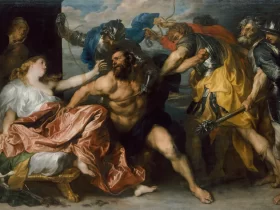







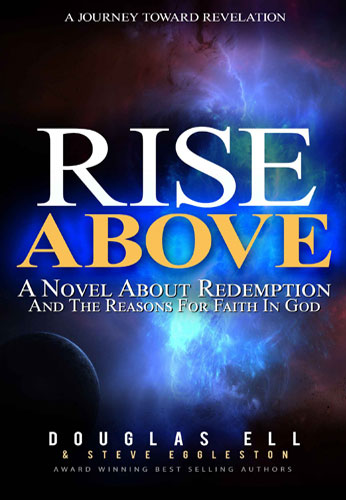
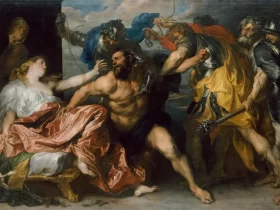
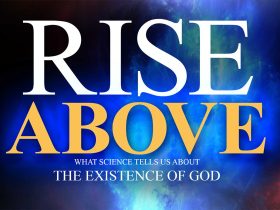
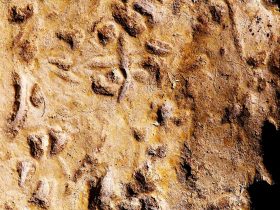

Leave a Reply